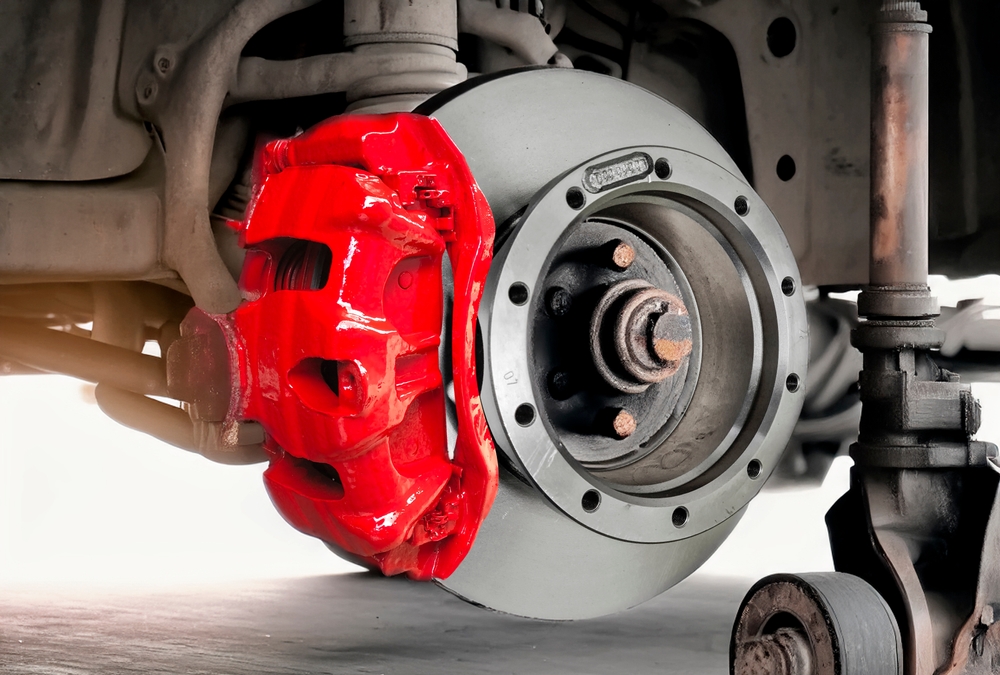In 2025, the Commercial Vehicle Safety Alliance (CVSA) will roll out key safety events designed to enforce standards, reduce violations, and promote safer highways for all road users. From the International Roadcheck to Brake Safety Week, these initiatives are a crucial reminder of the importance of staying inspection-ready and compliant year-round.
For trucking professionals, these safety initiatives highlight the dual priorities of maintaining vehicle integrity and upholding safe driving practices. Whether you’re preparing for a detailed inspection or reinforcing good habits behind the wheel, proactive measures today can save you time, money, and potential penalties down the line.
Here’s everything you need to know about the 2025 CVSA safety initiatives and how to prepare for a successful year on the road.
International CVSA Roadcheck: May 13-15, 2025
The International Roadcheck is one of the most significant annual safety events in the trucking industry. Over a concentrated three-day period, inspectors from the CVSA across North America conduct detailed inspections of commercial motor vehicles and their drivers. The goal is to ensure safety compliance and improve road safety for everyone. For trucking professionals, this event highlights the importance of staying prepared and maintaining high safety standards year-round.
What to Expect
During the International Roadcheck, inspectors will focus on two main aspects:
- Vehicle Safety:
- Brakes: Proper function, adjustment, and condition of the braking system will be scrutinized, as brake-related violations are a leading cause of vehicles being placed out of service.
- Tires: Inspectors will check for proper inflation, tread depth, and signs of wear or damage.
- Lights: Functionality of headlights, taillights, turn signals, and marker lights will be inspected to ensure visibility and compliance.
- Cargo Securement: Inspectors will verify that loads are properly secured to prevent shifting or loss during transport.
- Other Key Components: Steering systems, suspension, fuel systems, and other critical elements will be assessed for compliance with safety standards.
- Driver Compliance:
- Credentials: Inspectors will review driver’s licenses, medical certificates, and other required documentation.
- Hours of Service (HOS): Logs will be checked to ensure compliance with federal regulations. Violations could result in fines or out-of-service orders.
- Seat Belt Use: Proper seat belt usage is mandatory and will be enforced.
- Signs of Impairment: Drivers will be assessed for potential alcohol or drug use, ensuring they are fit to operate their vehicles safely.
Failure to meet these standards can lead to citations, fines, or even vehicles being placed out of service, resulting in delays and potential revenue loss.
Preparation Tips
Preparation is key to a successful inspection. By taking proactive steps, drivers and fleets can reduce the likelihood of violations and keep operations running smoothly. Here are some tips to ensure readiness:
- Conduct Thorough Pre-Trip and Post-Trip Inspections:
- Check critical vehicle components such as brakes, tires, lights, and cargo securement.
- Look for signs of wear, leaks, or damage, and address any issues immediately.
- Verify Documentation:
- Ensure your HOS logs are accurate and up-to-date.
- Confirm that your driver’s license, medical certificates, and other credentials are valid and current.
- Pay Special Attention to High-Focus Areas:
- Given the historical emphasis on brakes and tires during inspections, double-check these components for proper functioning and compliance with regulatory standards.
- Schedule Regular Maintenance:
- Work closely with your fleet maintenance team or mechanic to ensure vehicles are in optimal condition. Routine checks can prevent minor issues from becoming costly violations.
- Stay Informed:
- Familiarize yourself with CVSA guidelines and requirements. Understanding what inspectors look for can help you prepare effectively.
The Importance of Readiness
The International Roadcheck serves as a reminder that safety compliance is not just about passing inspections—it’s about protecting lives on the road. A well-maintained vehicle and a compliant, well-prepared driver contribute to safer highways for everyone. By focusing on regular maintenance and adhering to safety regulations, trucking professionals can minimize the risk of violations and disruptions during this annual event.
Taking these steps ensures that drivers are ready for the International Roadcheck and can navigate the event confidently, knowing they’ve done everything to meet and exceed compliance standards.

Operation Safe Driver Week: July 13-19, 2025
Operation Safe Driver Week is an annual enforcement and educational initiative led by the Commercial Vehicle Safety Alliance. This event focuses on identifying and addressing unsafe driving behaviors among both commercial motor vehicle drivers and passenger vehicle drivers. The ultimate aim is to reduce the number of crashes on the road by encouraging safer habits and fostering a culture of responsibility behind the wheel.
With large trucks sharing the road with smaller vehicles, this initiative is especially important to ensure the safety of all road users. Operation Safe Driver Week emphasizes that road safety is a shared responsibility, and adherence to proper driving practices can save lives.
What to Expect
During this week-long event, law enforcement officers across North America will actively monitor and enforce traffic laws to curb dangerous driving behaviors. The focus will be on behaviors that contribute significantly to accidents and collisions.
- Violations Officers Will Monitor:
- Speeding: One of the leading causes of accidents, excessive speed will be a primary focus during the campaign.
- Tailgating: Following too closely to the vehicle ahead increases the risk of collisions and will be penalized.
- Improper Lane Changes: Unsafe or abrupt lane changes without signaling or checking blind spots are a common source of accidents.
- Distracted Driving: Activities like texting, talking on the phone, or eating while driving will draw the attention of law enforcement.
- Failure to Use Seat Belts: Seat belt violations will be strictly enforced, as wearing a seat belt significantly reduces the risk of injury or death in an accident.
- Who Is Subject to Enforcement:
- Both commercial drivers and passenger vehicle drivers will be monitored for unsafe driving behaviors.
- Law enforcement will focus on how smaller vehicles interact with large trucks, ensuring mutual respect and safe practices between all drivers.
- Educational Opportunities:
- In addition to issuing citations for violations, officers may take the opportunity to educate drivers on safe driving practices. This approach not only enforces the rules but also helps build awareness of the importance of safety on the road.
Preparation Tips
Staying prepared and adopting safe driving habits can help drivers avoid violations during Operation Safe Driver Week—and more importantly, contribute to a safer driving environment.
- Practice Defensive Driving:
- Stay alert and anticipate potential hazards on the road. Be prepared to adjust your driving based on the actions of others, weather conditions, or unexpected events.
- Avoid Distractions:
- Distractions such as texting, using a phone, or engaging in other non-driving activities significantly increase the risk of accidents. Keep your focus on the road at all times.
- Follow Speed Limits:
- Always adhere to posted speed limits, and adjust your speed based on road and weather conditions. Remember, driving too fast reduces your ability to react quickly in emergencies.
- Maintain Safe Following Distances:
- Avoid tailgating by leaving enough space between your vehicle and the one ahead. This gives you adequate time to stop or react to sudden changes in traffic.
- Use Turn Signals and Follow Lane Discipline:
- Signal well in advance when changing lanes or making turns. Stay in your lane and avoid abrupt or erratic movements.
- Wear Your Seat Belt:
- Always buckle up, and ensure all passengers in your vehicle do the same. A seat belt is one of the most effective tools for protecting yourself in the event of an accident.
The Bigger Picture
Operation Safe Driver Week is more than just an enforcement campaign—it’s a wake-up call to drivers across North America to prioritize safety. By focusing on dangerous driving behaviors and fostering safer habits, this initiative works to reduce crashes, injuries, and fatalities on the road.
Road safety starts with each driver taking personal responsibility for their actions behind the wheel. Whether you’re a commercial driver operating a heavy-duty vehicle or a passenger car driver sharing the road with trucks, following safe driving practices ensures the well-being of all road users.
By making defensive driving and adherence to traffic laws a daily habit, you can not only avoid citations during this campaign but also contribute to creating safer roads for everyone.

Brake Safety Week: August 24-30, 2025
Brake Safety Week, organized by the Commercial Vehicle Safety Alliance, plays a pivotal role in promoting road safety by ensuring that commercial vehicles are equipped with fully functional and compliant brake systems. Since brake-related violations are one of the leading reasons vehicles are taken out of service during inspections, this initiative focuses on raising awareness and encouraging drivers and fleet operators to prioritize brake maintenance.
This week-long event not only enforces compliance but also serves as a reminder of the importance of a well-maintained brake system in preventing accidents, ensuring operational efficiency, and protecting the lives of all road users.
What to Expect During Brake Safety Week
Brake Safety Week involves rigorous inspections conducted by certified CVSA officers across North America. These inspections focus on identifying brake-related issues that compromise vehicle safety. Here’s what drivers and fleets can expect:
- Thorough Inspections of Brake System Components:
- Air Brakes: Inspectors will check for leaks, proper pressure levels, and functionality of hoses and valves.
- Brake Linings and Pads: Components will be checked for wear, ensuring thickness and condition meet regulatory standards.
- Adjustment: Proper adjustment of brake pushrods will be measured to ensure brakes are correctly set.
- General System Integrity: Inspectors will examine the overall condition of the brake system, including drums, rotors, and mounting hardware, to ensure there are no defects or signs of malfunction.
- Consequences of Non-Compliance:
- Trucks with defective or improperly adjusted brakes risk being placed out of service immediately.
- Non-compliance may lead to fines, delays, and additional expenses, including repairs, re-inspections, and potential legal liabilities.
- Persistent violations can also damage a fleet’s reputation and lead to increased insurance costs.
Why Brake Safety Matters
The condition of a truck’s brake system directly impacts its ability to safely stop and maneuver, especially under heavy loads or in emergency situations. A faulty brake system can increase stopping distances, create uneven braking, and contribute to severe accidents. Given the size and weight of commercial vehicles, even minor brake deficiencies can lead to catastrophic consequences.
Brake Safety Week aims to prevent such scenarios by encouraging proper maintenance, inspections, and compliance throughout the trucking industry.
Preparation Tips for Brake Safety Week
Preparation is key to avoiding violations and ensuring smooth operations during Brake Safety Week. Here’s how drivers and fleets can get ready:
- Incorporate Daily Brake Checks:
- As part of your pre-trip and post-trip routines, inspect your vehicle’s brake components for signs of wear or damage.
- Listen for unusual sounds, check for air leaks in the system, and ensure that brakes respond correctly during application.
- Schedule Regular Maintenance Inspections:
- Work with a qualified mechanic to perform detailed inspections of your brake system on a regular schedule.
- Routine maintenance can help identify small issues before they become major problems, reducing the risk of non-compliance during inspections.
- Address Issues Immediately:
- If any problems are detected, address them as soon as possible. Delaying repairs can increase the risk of costly violations or accidents.
- Ensure that worn components, such as brake pads or linings, are replaced with high-quality parts to maintain safety and reliability.
- Stay Updated on Inspection Standards:
- Familiarize yourself with the CVSA Out-of-Service Criteria, which detail the specific brake-related issues that could result in a vehicle being placed out of service.
- Prepare Your Drivers:
- Educate drivers on the importance of brake maintenance and ensure they understand what to check during their daily inspections.
- Encourage a proactive approach to reporting potential brake issues.
The Broader Impact of Brake Safety Week
Brake Safety Week is not just about passing inspections—it’s about fostering a culture of safety in the trucking industry. By maintaining functional brake systems, drivers and fleets can help reduce accidents, protect lives, and ensure the efficiency of their operations.
For fleet managers, this initiative also serves as a reminder to invest in preventative maintenance programs and keep vehicles in compliance year-round. Proactive efforts in brake maintenance not only improve safety but also reduce downtime, protect a company’s reputation, and save money in the long run.
Year-Round Safety is Key
While these specific CVSA events are important, maintaining safety and compliance is a year-round responsibility. Consistently adhering to safety protocols not only keeps you compliant during inspections but also helps prevent accidents and costly fines.
General Safety Tips
- Inspect Daily: Thorough pre-trip and post-trip inspections are your first line of defense.
- Stay Informed: Keep up with changes in regulations and industry standards.
- Plan Ahead: Ensure your schedules allow for compliance with HOS rules.
- Drive Defensively: Stay alert and anticipate potential hazards on the road.
Simplify Compliance with ExpressTruckTax
Staying compliant with CVSA inspections is vital, and ExpressTruckTax.com is here to make managing your IRS Form 2290 filings fast and hassle-free. With tools like instant error checks, free VIN corrections, and secure record-keeping for up to 7 years, you can focus on keeping your fleet safe and compliant. File your Form 2290 today and get your stamped Schedule 1 in minutes!

